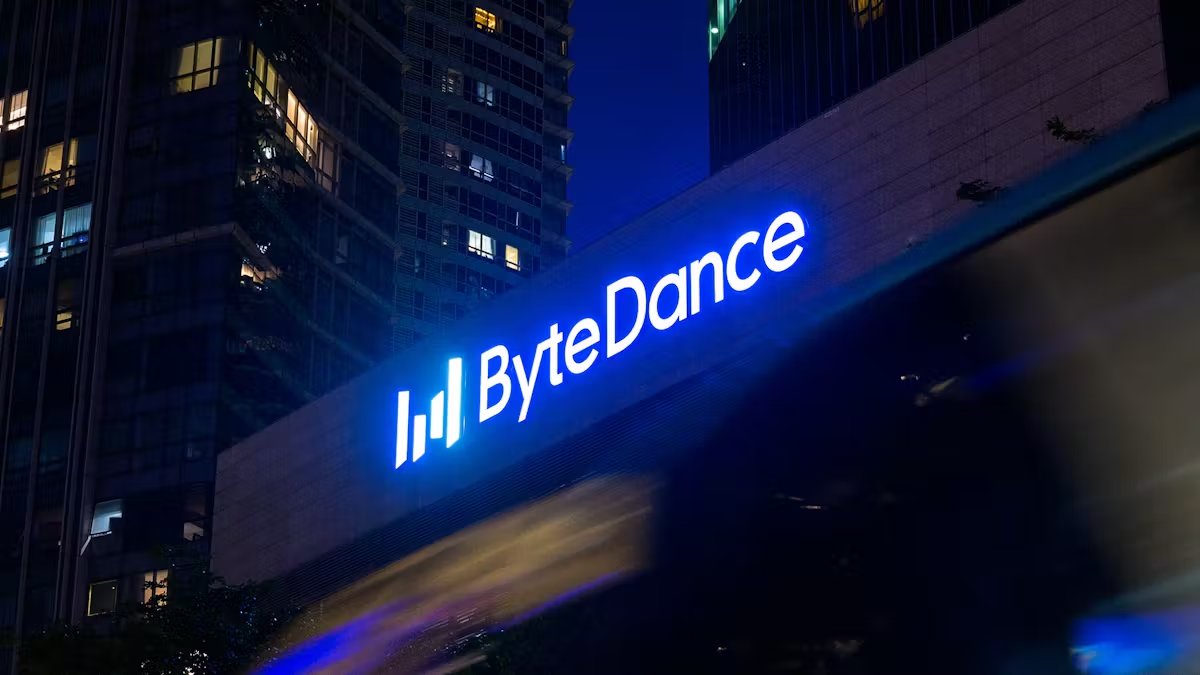ByteDance, the parent company of TikTok, recently made headlines for an unusual incident involving an intern who allegedly caused significant damage to the company’s artificial intelligence (AI) systems. The Chinese tech giant confirmed the dismissal of a junior employee who was accused of “maliciously interfering” with its AI training models, which led to an estimated $10 million in damages.
The Incident: Sabotaging AI Training Models
The incident unfolded when reports began circulating on Chinese social media platforms about a ByteDance intern who had intentionally injected code and altered parameters within the company’s AI training system. According to these reports, the intern planted a virus into the network of commercial graphics processing units (GPUs) that were being used for AI model training. This caused considerable disruption, and it is believed that the damage could amount to $10 million.
Adding to the complexity of the situation, some sources alleged that the intern attended meetings discussing the virus’s effects while pretending to be unaware of the consequences. ByteDance took immediate action, terminating the intern’s contract in August 2024, shortly after the incident was discovered. The company’s internal communications, including a post on its news platform Toutiao, confirmed the intern’s dismissal and described the employee as being part of the commercial technology team, without any prior experience in the AI lab. ByteDance also reported that the intern had no access to critical business operations or large-scale commercial projects.
ByteDance Responds to Rumors and Exaggerations
Despite the serious accusations, ByteDance refuted some of the claims circulating about the incident, particularly the assertion that the company lost tens of millions of dollars or that 8,000 GPUs were involved. The company labeled these reports as “seriously exaggerated”. ByteDance emphasized that the intern’s actions did not impact its broader business activities or the large AI models that power its products.
However, ByteDance did take further steps to manage the fallout. The company alerted the intern’s university about the incident to ensure that appropriate disciplinary measures were taken. This was part of ByteDance’s commitment to ensuring that such actions would not disrupt its operations, especially as the company intensifies its efforts to lead the AI space.
ByteDance’s AI Ambitions and Setbacks
The incident comes at a critical time for ByteDance, which has been aggressively trying to expand into the AI space. As the company looks to leverage its massive success with TikTok, ByteDance has been playing catch-up with global AI giants like OpenAI and Baidu. The company’s CEO, Liang Rubo, publicly admitted earlier this year that ByteDance was behind in the race to develop generative AI. In a company-wide meeting, he acknowledged that the company had not fully appreciated the urgency of AI development until it was already behind competitors, noting that discussions related to GPT (Generative Pretrained Transformers) models had not emerged until 2023, even though the first version of GPT was released in 2018.
ByteDance, however, quietly launched its own AI chatbot, Doubao, in 2023, using technology based on ChatGPT. The company faced some criticism for relying on an external model, which some viewed as a sign of desperation, but ByteDance defended the move by clarifying that it had licensed and legally integrated the ChatGPT API for initial development purposes. According to ByteDance, ChatGPT was used in the early stages for annotation purposes and was later removed from the model.
Despite these early hurdles, ByteDance’s AI ambitions appear to be gaining traction. By May 2024, Doubao overtook Baidu’s chatbot in popularity, becoming China’s most downloaded AI chatbot. In a notable shift, ByteDance’s chatbot, along with its video-editing app CapCut, outpaced ChatGPT in downloads during July 2024, according to a report from Unique Capital.
Looking Ahead: The Next Step for ByteDance
In addition to its chatbot ambitions, ByteDance is expanding into the hardware market, as evidenced by the launch of its Ola Friend wearable AI earbuds. These earbuds, priced at $170, serve as an audio assistant and can access Doubao without the need for a smartphone connection. Currently available only in China, the Ola Friend earbuds represent ByteDance’s growing interest in AI-powered consumer hardware.
ByteDance’s swift actions to terminate the intern, alongside its ongoing AI developments, demonstrate the company’s commitment to maintaining its competitive edge in both the tech and AI sectors. As ByteDance races to catch up with industry leaders, it remains to be seen how this controversy might impact its future in the rapidly evolving world of artificial intelligence.
